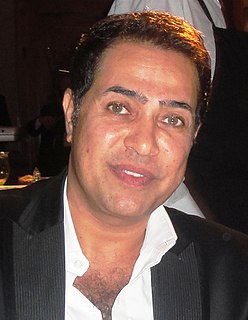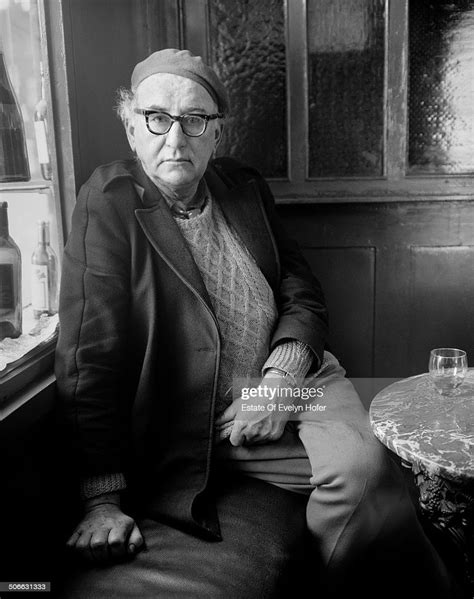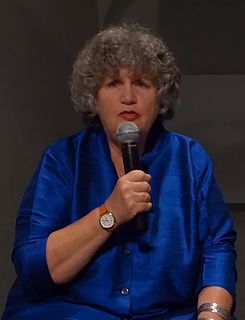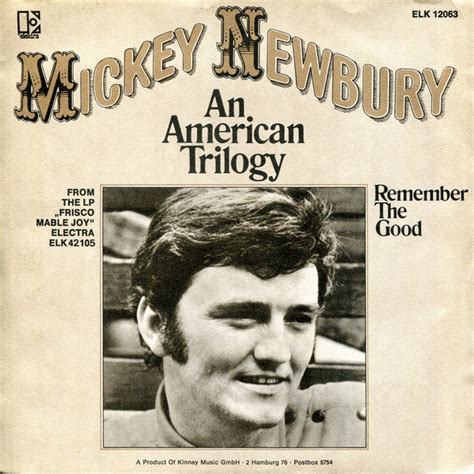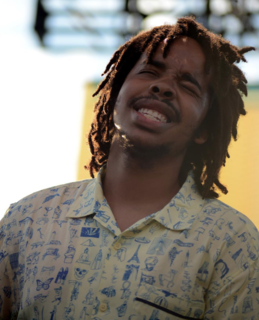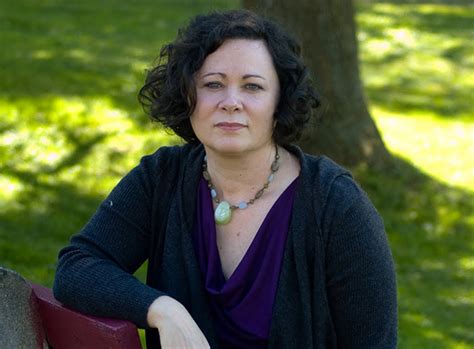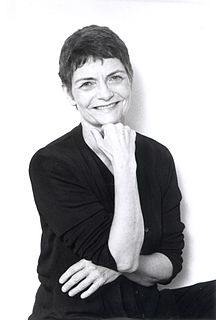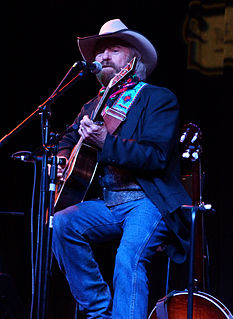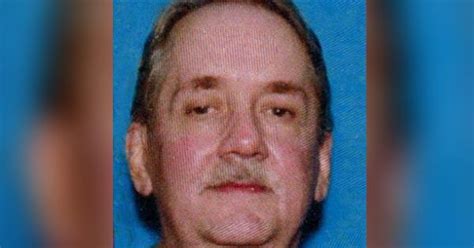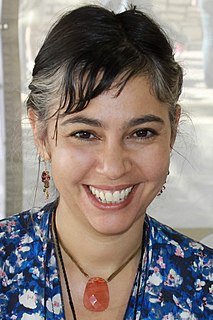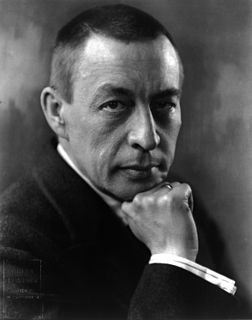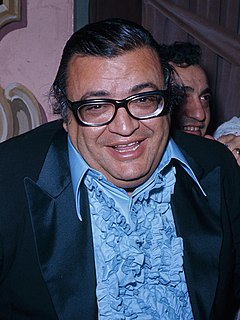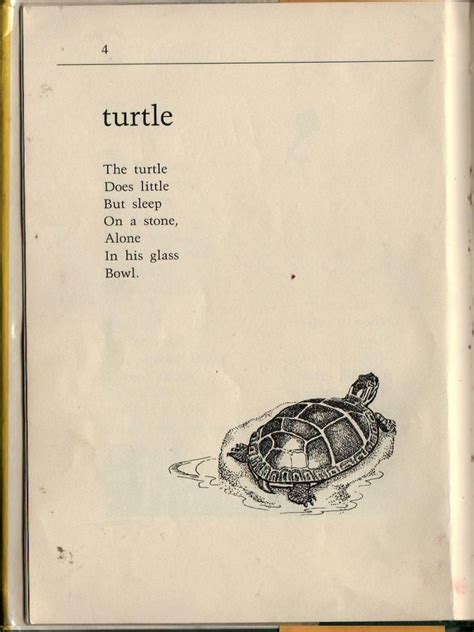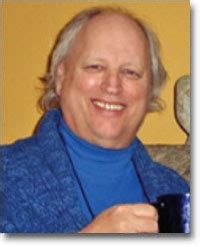Top 1200 Love Poetry Quotes & Sayings - Page 16
Explore popular Love Poetry quotes.
Last updated on November 19, 2024.
IN PERSIA I SAW that poetry is meant to be set to music & chanted or sung--for one reason alone--because it works.A right combination of image & tune plunges the audience into a hal (something between emotional/aesthetic mood & trance of hyperawareness), outbursts of weeping, fits of dancing--measurable physical response to art. For us the link between poetry & body died with the bardic era--we read under the influence of a cartesian anaesthetic gas.
Poetry is not like reasoning, a power to be exerted according to the determination of the will. A man cannot say, 'I will compose poetry.' The greatest poet even cannot say it; for the mind in creation is as a fading coal, which some invisible influence, like an inconstant wind, awakens to transitory brightness...and the conscious portions of our natures are unprophetic either of its approach or its departure.
The best generals I have known were... stupid or absent-minded men. Not only does a good army commander not need any special qualities, on the contrary he needs the absence of the highest and best human attributes - love, poetry, tenderness, and philosophic inquiring doubt. He should be limited, firmly convinced that what he is doing is very important (otherwise he will not have sufficient patience), and only then will he be a brave leader. God forbid that he should be humane, should love, or pity, or think of what is just and unjust.
It is at once by way of poetry and through poetry, as with music, that the soul glimpses splendors from beyond the tomb; and when an exquisite poem brings one's eyes to the point of tears, those tears are not evidence of an excess of joy, they are witness far more to an exacerbated melancholy, a disposition of the nerves, a nature exiled among imperfect things, which would like to possess, without delay, a paradise revealed on this very same earth.
What poetry is asking us to accept can be difficult. Our proximity to our mortality, the fragility of our existence, how close we live in every moment to nameless abysses, and the way language itself is beautifully, tragically, thrillingly insufficient...these are some of the engines that drive the poem. It's natural to want to turn away from these things. But we have to face them, as best we can, at least sometimes. Poetry can help us in that nearly impossible work.
I don't really think in terms of the future of literature. I think literature will be around "forever" - but in a relatively niche way, like jazz and poetry, although probably more widely consumed than jazz and poetry since it's fundamentally a narrative form. And I think that's important and places like Word Riot and 'The New York Tyrant' and 'n+1' will be responsible for keeping it alive.
Poetry began in the matriarchal age, and derives its magic from the moon, not from the sun. No poet can hope to understand the nature of poetry unless he has had a vision of the Naked King crucified to the lopped oak, and watched the dancers, red-eyed from the acrid smoke of the sacrificial fires, stamping out the measure of the dance, their bodies bent uncouthly forward, with a monotonous chant of "Kill! kill! kill!" and "Blood! blood! blood!
I've noticed that there can be a visceral reaction to strong statements about poetry, as if anyone who has an opinion and expresses it is shutting people down. It's funny to see that expressed, and then to go back and read poetic statements by the great poets of the past: they are full of a passionate conviction! It is clearly possible to express strong feelings about poetry while also defending the absolute right of myriad approaches.
In the first few pages, Kundera discusses several abstract historical figures: Robespierre, Nietzsche, Hitler. For Eunice's sake, I wanted him to get to the plot, to introduce actual "living" characters - I recalled this was a love story - and to leave the world of ideas behind. Here we were, two people lying in bed, Eunice's worried head propped on my collarbone, and I wanted us to feel something in common. I wanted this complex language, this surge of intellect, to be processed into love. Isn't that how they used to do it a century ago, people reading poetry to one another?
We hate poetry that has a palpable design upon us - and if we do not agree, seems to put its hand in its breeches pocket. Poetry should be great & unobtrusive, a thing which enters into one's soul, and does not startle it or amaze it with itself but with its subject. - How beautiful are the retired flowers! how would they lose their beauty were they to throng into the highway crying out, "admire me I am a violet! dote upon me I am a primrose!"
Flamboyance and fortitude, femme and butch-not poses, not stereotypes, but a dance between two different kinds of women, one beckoning the other into a full blaze of color, the other strengthening the fragility behind the exuberance. We who love this way are poetry and history, action and theory, flesh and spirit.
The aesthetic event is something as evident, as immediate, as indefinable as love, the taste of fruit, of water. We feel poetry as we feel the closeness of a woman, or as we feel a mountain or a bay. If we feel it immediately, why dilute it with other words, which no doubt will be weaker than our feelings?
I've known great happiness in my life along with great darkness, and a question that has repeatedly entered my poetry has been, how do we use the direct experience of happiness that may be given us, whether of love and sexuality or creativity or the sense of connectedness with other beings, human and otherwise?
I think I love and reverence all arts equally, only putting my own just above the others; because in it I recognize the union and culmination of my own. To me it seems as if when God conceived the world, that was Poetry; He formed it, and that was Sculpture; He colored it, and that was Painting; He peopled it with living beings, and that was the grand, divine, eternal Drama.
I love the working class, and everyone from it that I've met, and think they're incredible witty, inventive - there's a lot of poetry there. A lot of rough stuff as well. What there is, too, is an awful lot of expressiveness and intelligence and originality down there. And a lot of thwarted intelligence.
The first song I wrote and had published was titled "Just As Long As That Someone Is You". It was written in 1959, and recorded in 1965 by Jimmy Ellege. I started writing songs because I wanted something of my own to sing. I, at that time, was not aware that the songs I heard on the radio were not written by the folks singing them. I had always loved poetry, and found it easy to integrate a melody with poetry.
Poetry interprets in two ways: it interprets by expressing, with magical felicity, the physiognomy and movements of the outward world; and it interprets by expressing, with inspired conviction, the ideas and laws of the inward world of man's moral and spiritual nature. In other words, poetry is interpretative both by having natural magic in it, and by having moral profundity.
I think rap music is rap music. I mean, are there heavy writing aspects of it? Absolutely. In a sense, is it poetry? Yeah. I've heard that so much, growing up in a house with poetry. But I think people like to use that as a shortcut for who's good and who's not. It's like the word 'lyrical' - 'lyrical' is the worst word in the entire world.
He carried Paul inside and up the stairs. He gave him a drink of water and the orange chewable aspirin he like and sat with him on the bed, holding his hand...This was what he yearned to capture on film: these rare moments where the world seemed unified, coherent, everything contained in a single fleeting image. A spareness that held beauty and hope and motion - a kind of silvery poetry, just as the body was poetry in blood and flesh and bone.
Truly fine poetry must be read aloud. A good poem does not allow itself to be read in a low voice or silently. If we can read it silently, it is not a valid poem: a poem demands pronunciation. Poetry always remembers that it was an oral art before it was a written art. It remembers that it was first song.
Poetry and code - and mathematics - make us read differently from other forms of writing. Written poetry makes the silent reader read three kinds of pattern at once; code moves the reader from a static to an active, interactive and looped domain; while algebraic topology allows us to read qualitative forms and their transformations.
Herein is the explanation of the analogies, which exist in all the arts. They are the re-appearance of one mind, working in many materials to many temporary ends. Raphael paints wisdom, Handel sings it, Phidias carves it, Shakspeare writes it, Wren builds it, Columbus sails it, Luther preaches it, Washington arms it, Watt mechanizes it. Painting was called "silent poetry," and poetry "speaking painting." The laws of each art are convertible into the laws of every other.
Poetry is an intimate act. It's about bringing forth something that's inside you--whether it is a memory, a philosophical idea, a deep love for another person or for the world, or an apprehension of the spiritual. It's about making something, in language, which can be transmitted to others--not as information, or polemic, but as irreducible art.
A great poet has seldom sung of lawfully wedded happiness, but of free and secret love; and in this respect, too the time is coming when there will no longer be one standard of morality for poetry and another for life. To anyone tender of conscience, the ties formed by a free connection are stronger than the legal ones.
I think the first time I really heard poetry was in the schoolyard. Just the little limericks that kids say when they're jumping rope and playing games. I think that's the first time I heard rhyming words - I don't know if I'd call that the definitive poetry, but that's when I heard rhyming words said and not necessarily sung.
To Nature the dweller in the Nile valley linked all that was dear to him: his happiest fetes, poetry, and love - all were bound up with the garden and its products, especially flowers. Few Oriental nations can think of a festival without flowers, but nowhere are they so completely a part of human life, and so essential, as in [Ancient] Egypt.
There are tons of people in the West who love fiddles, banjos and mandolins. If you got to any cowboy poetry and music gathering those are the instruments they use. It's acoustic music. We don't do that much modern country that has electric guitars and a lot of volume. It's a gentler form of music. It's from the land and comes from the ranchers and farmers.
Among all the valuable things of this world, the word is the most precious. For in the word one can find a light which gems and jewels do not possess; a word may contain so much life that it can heal the wounds of the heart. Therefore, poetry in which the soul is expressed is as living as a human being. The greatest reward that God bestows on man is eloquence and poetry. This is not an exaggeration, for it is the gift of the poet that culminates, in time, with the gift of prophecy.
Poetry gave me the life I live: many of the people I love, the places I've traveled, the things I've learned about myself, the job I hold. And I can't count the times I've been on the precipice of making a - shall we say "adventurous"? - decision and thought, "But think of the poem I'll get out of this." Most of them have paid off.
My path to poetry was slow and meandering. When I eventually found my way to graduate school at 29, making a life as a poet seemed like a bohemian fantasy. But maybe my zigzagging trajectory is just an excuse for tardiness, when fear is really the root of any reason I might give. My perfectionism and pace are certainly driven by fear that a poem is imperfect or incomplete. More significantly, my struggle to fully dedicate myself to poetry was a fear of failure.
Whereas if you were writing an op-ed piece or an essay, somebody would be asking, "What's your point?" With poetry you can stay in a moment for as long as you want. Poetry is about metaphor, about a thing standing in for something else. It's the thing that opens out to something else. What that something else is changes for readers. So what's on the page - it falls away.
Love really is the answer to human problems: love of oneself, love of others, love of where one is, love of what one is doing, love of nature, love of life, love of the world, love of spirit in all its wonder and splendor. Love sets our energy free. It opens us and puts us in a flow with spirit and life on many levels. Love is the true secret behind manifestation.
Watching and learning from the great Josette Bushell-Mingo, who was playing Cleopatra in Antony and Cleopatra at the time, and then to return to the same stage six months later playing a lead role, was incredible - I fell in love with the poetry and the breadth of the language so much that I didn't want it to end.
If a serious statement is defined as one that may be made in terms of waking life, poetry will never rise to the level of seriousness. It lies beyond seriousness, on that more primitive and original level where the child, the animal, the savage, and the seer belong, in the region of dream, enchantment, ecstasy, laughter. To understand poetry we must be capable of donning the child's soul like a magic cloak and of forsaking man's wisdom for the child's.
High school was the first time I ever saw spoken word poetry. The first place I ever performed a poem was at my school, so in some ways it was the nucleus of how it all started. For me I think high school was a period of trying to figure myself out, and poetry was one of the ways I did that, and was a very helpful avenue to try to do that.
Cultural criticism finds itself faced with the final stage of the dialectic of culture and barbarism. To write poetry after Auschwitz is barbaric. And this corrodes even the knowledge of why it has become impossible to write poetry today. Absolute reification, which presupposed intellectual progress as one of its elements, is now preparing to absorb the mind entirely. Critical intelligence cannot be equal to this challenge as long as it confines itself to self-satisfied contemplation.
There are many ways to love someone. Sometimes we want love so much, we're not too choosy about who we love. Other times, we make love such a pure and noble thing, no poor human can ever meet our vision. But for the most part, love is a recognition, an opportunity to say, "There is something about you I cherish." It doesn't entail marriage, or even physical love. There's love of parents, love of city or nation, love of life, and love of people. All different, all love.
In a way, that's also a recognition that Dante needs Virgil and that the Inferno needs the Aeneid and that the epic needs a model and that for Dante to write this great poem he needs someone to come before him and he turns to Virgil's text, especially book six where Aeneas goes down into the underworld. And for me, that's a model of the poet's relationship to previous poetry, to another poetry as calling out for guidance.
Poets are political, they have to be reflections of their times [because] they're living in their times... Poetry is political in that it's standing in opposition to fascism. Good poetry asks a bunch of questions and asks the audience to interact with themselves or see themselves in it; maybe you like it or you don't like it. But the fascist sort of stuff plays on your fears and tells you to jump on the party line and gives some simple excuses - blame this person.
Whoever lives for poetry must read everything. How often has the light of a new idea sprung for me from a simple brochure! When one allows himself to be animated by new images, he discovers iridescence in the images of old books. Poetic ages unite in a living memory. The new age awakens the old. The old age comes to live again in the new. Poetry is never as unified as when it diversifies.
To later Romans Ennius was the personification of the spirit of early Rome; by them he was called "The Father of Roman Poetry." We must remember how truly Greek he was in his point of view. He set the example for later Latin poetry by writing the first epic of Rome in Greek hexameter verses instead of in the old Saturnian verse. He made popular the doctrines of Euhemerus, and he was in general a champion of free thought and rationalism.
